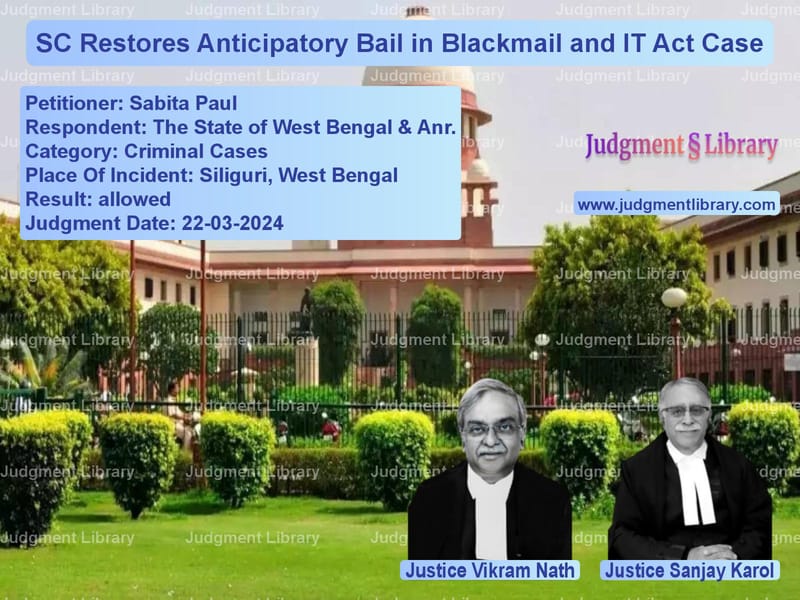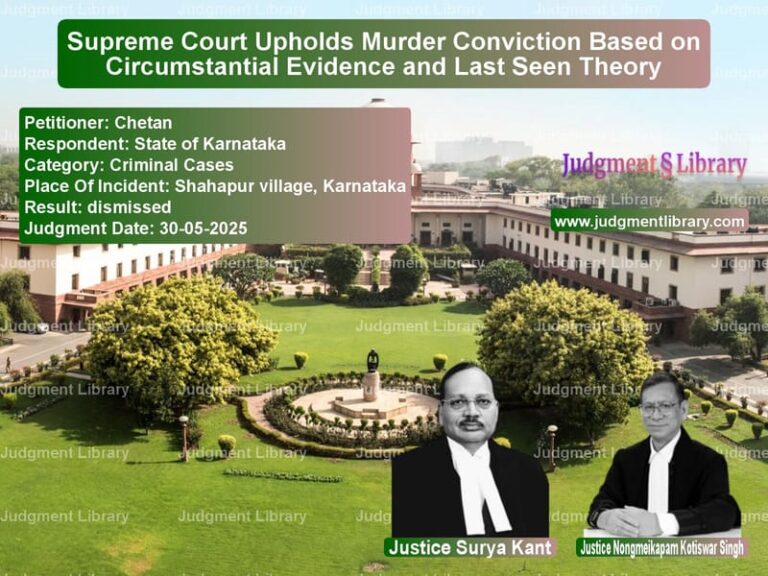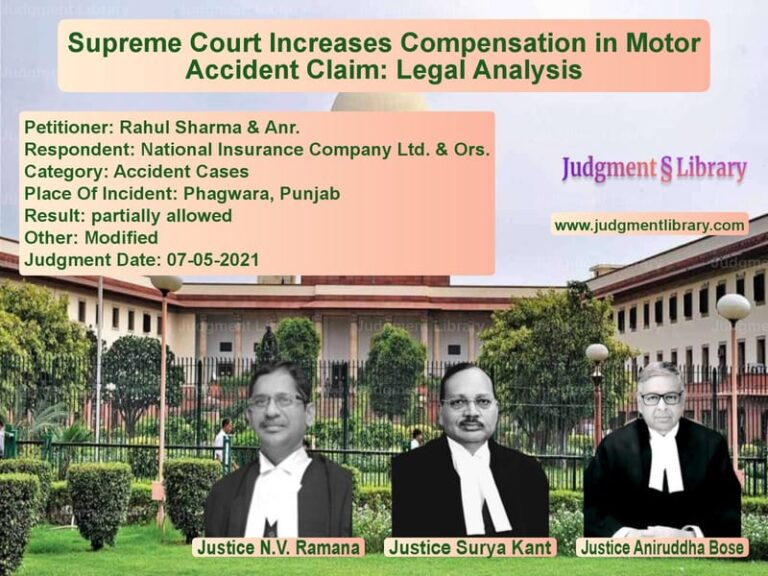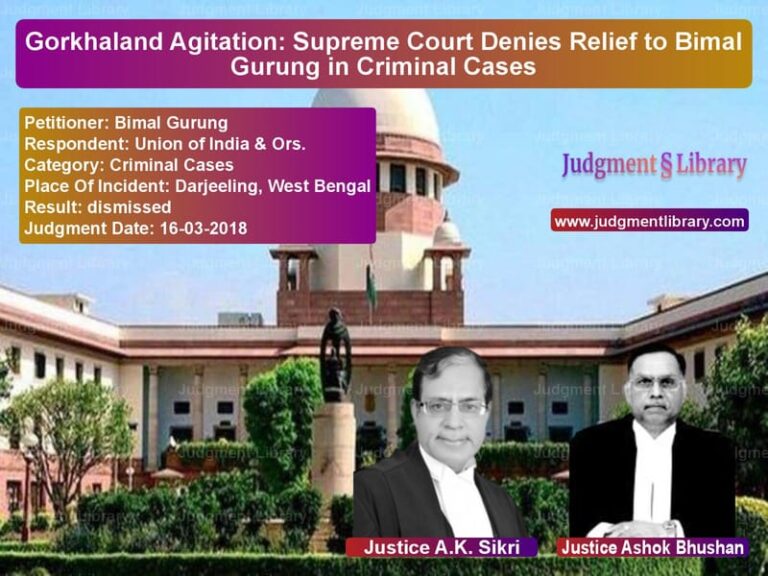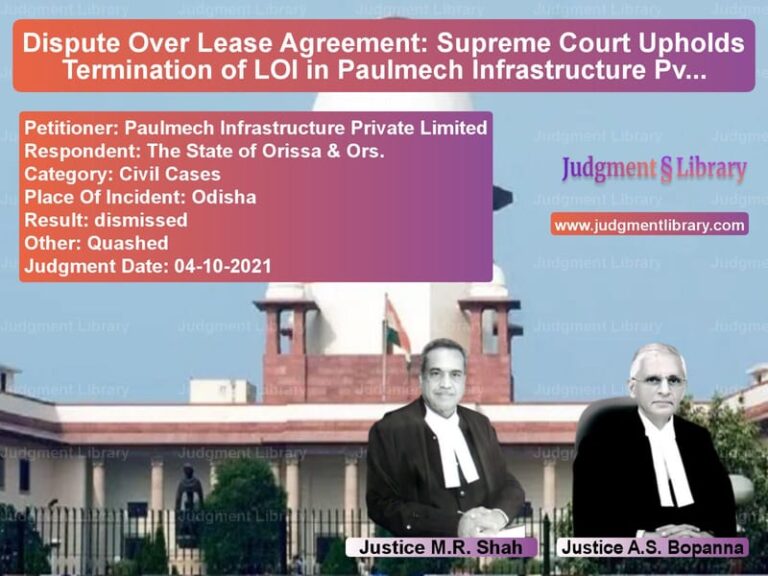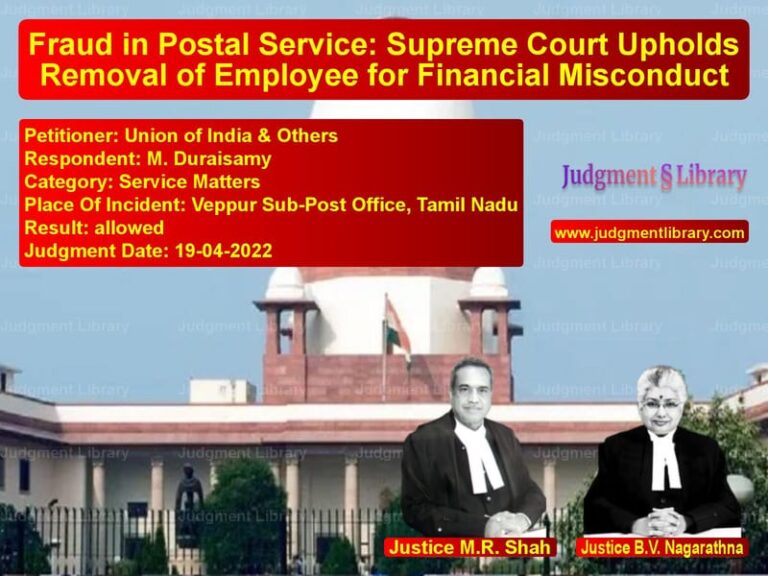SC Restores Anticipatory Bail in Blackmail and IT Act Case
The Supreme Court of India recently ruled in favor of restoring anticipatory bail to a woman accused of conspiring in a blackmail case involving private photographs. The case, Sabita Paul vs. The State of West Bengal & Anr., stemmed from allegations that the appellant conspired with her son to extort money from the complainant using compromising photographs. The ruling clarifies the legal principles regarding anticipatory bail, especially in cases of alleged conspiracy.
Background of the Case
The complaint was filed by Smt. X (name withheld) at the Siliguri Police Station, West Bengal, leading to the registration of FIR No. 438 of 2022 on May 7, 2022. The complainant alleged that:
- Supratim Paul, the primary accused, had secretly taken obscene photographs of her.
- Supratim Paul used these photographs to attempt extortion, demanding money.
- When his demands were not met, he shared the photographs with his mother, Sabita Paul (the appellant).
- Sabita Paul allegedly joined the blackmail attempt, making further demands for money.
On this basis, both mother and son were booked under sections of the Indian Penal Code (IPC) and the Information Technology (IT) Act.
Legal Charges
The accused faced the following charges:
- Supratim Paul: Sections 376 (rape), 354 (outraging a woman’s modesty), 389 (extortion by putting a person in fear of accusation), 506 (criminal intimidation), and 120-B (criminal conspiracy) of the IPC.
- Sabita Paul: Section 120-B (criminal conspiracy) of the IPC and Section 67A of the Information Technology Act, 2000 (publishing or transmitting sexually explicit material).
Proceedings Before Lower Courts
1. District Court and High Court Decisions
- Supratim Paul was granted bail without opposition.
- Sabita Paul applied for anticipatory bail, which was denied twice—first by the Sessions Court and then by the Calcutta High Court.
- After the chargesheet was filed, she reapplied for anticipatory bail, which was granted by the High Court on June 12, 2023.
- The complainant challenged this bail order, leading to the cancellation of her bail by the High Court on September 20, 2023, on the grounds that she had suppressed material facts.
2. Supreme Court Intervention
The appellant approached the Supreme Court, seeking reinstatement of her anticipatory bail. The Court granted interim protection on November 6, 2023, ensuring that she remained out on bail while the case was heard.
Key Legal Issues
1. Can Anticipatory Bail Be Canceled Due to Previous Rejections?
The High Court had canceled the appellant’s bail primarily because she had not disclosed previous bail rejections. The Supreme Court examined whether this omission alone justified canceling bail.
2. Was the Appellant’s Role Significant Enough to Deny Bail?
The Court analyzed whether the appellant played an independent role in the alleged blackmail or if her actions were merely an extension of her son’s alleged crime.
3. Should Bail Be Granted on Parity?
Since Supratim Paul (the primary accused) had already secured bail, the Court considered whether his mother, charged with lesser offenses, should also receive the same benefit.
Supreme Court’s Observations
1. No Suppression of Material Facts
The Court found that while the appellant had previously been denied bail, she applied again only after the chargesheet was filed, which changed the case’s legal standing.
2. Anticipatory Bail Cannot Be Canceled Arbitrarily
Referring to the precedent set in Dr. Naresh Kumar Mangla v. Anita Agarwal & Ors., the Court emphasized that anticipatory bail can only be canceled if:
- There is new evidence of the accused influencing witnesses.
- The accused is not cooperating with the investigation.
- The bail order was granted on incorrect legal principles.
3. Appellant’s Role Was Secondary
The Court noted that the allegations against the appellant were derivative of the primary accused’s actions. It ruled:
“She has not acted independently to further aggravate the situation.”
4. Bail on Parity with the Primary Accused
The Court observed that if the primary accused (Supratim Paul) had already been granted bail, then the appellant, who played a secondary role, should also be granted the same benefit.
Final Verdict
The Supreme Court ruled:
- The High Court’s order canceling anticipatory bail was set aside.
- The bail order dated June 12, 2023, was restored.
- The appellant must continue to cooperate with the investigation and trial.
Key Takeaways
- Anticipatory bail should not be canceled arbitrarily: Once granted, bail cannot be withdrawn without strong reasons.
- Parity in bail matters: If a primary accused is granted bail, co-accused with lesser involvement may receive similar treatment.
- Blackmail and IT Act violations require strong evidence: Courts will scrutinize digital evidence before denying bail.
- Suppression of material facts must be substantial: Minor omissions should not lead to bail cancellation.
This ruling reinforces the principle that anticipatory bail should only be canceled if the accused poses a threat to justice. It also highlights the importance of individual roles in criminal conspiracy cases.
Petitioner Name: Sabita Paul.Respondent Name: The State of West Bengal & Anr..Judgment By: Justice Vikram Nath, Justice Sanjay Karol.Place Of Incident: Siliguri, West Bengal.Judgment Date: 22-03-2024.
Don’t miss out on the full details! Download the complete judgment in PDF format below and gain valuable insights instantly!
Download Judgment: sabita-paul-vs-the-state-of-west-be-supreme-court-of-india-judgment-dated-22-03-2024.pdf
Directly Download Judgment: Directly download this Judgment
See all petitions in Bail and Anticipatory Bail
See all petitions in Cyber Crimes
See all petitions in Judgment by Vikram Nath
See all petitions in Judgment by Sanjay Karol
See all petitions in allowed
See all petitions in supreme court of India judgments March 2024
See all petitions in 2024 judgments
See all posts in Criminal Cases Category
See all allowed petitions in Criminal Cases Category
See all Dismissed petitions in Criminal Cases Category
See all partially allowed petitions in Criminal Cases Category

